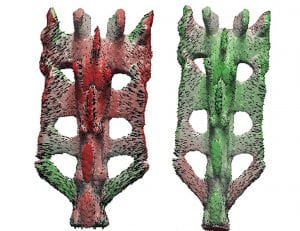
The IL-6 family of proteins has a bad reputation: it can promote inflammation, arthritis, autoimmune disease and even cancer. However, a new USC-led study published in Communications Biology reveals the importance of IL-6 and associated genes for maintaining and regenerating cartilage in both the joints and in the growth plates that enable skeletal growth in children.
“We show, for the first time, that the IL-6 family, previously almost exclusively associated in the musculoskeletal field with arthritis, bone and muscle loss, and other chronic inflammatory diseases, is required for the maintenance of skeletal stem and progenitor cells, and for the healthy growth and function of the joints and spine,” said the study’s corresponding author Denis Evseenko, who is the J. Harold and Edna LaBriola Chair in Genetic Orthopedic Research, and an associate professor of orthopaedic surgery, and stem cell biology and regenerative medicine at USC. “Our study establishes a link between inflammation and regeneration, and may explain why stem and progenitors are exhausted in chronic inflammation.”
To read more, visit https://stemcell.keck.usc.edu/joints-and-growth-plates.